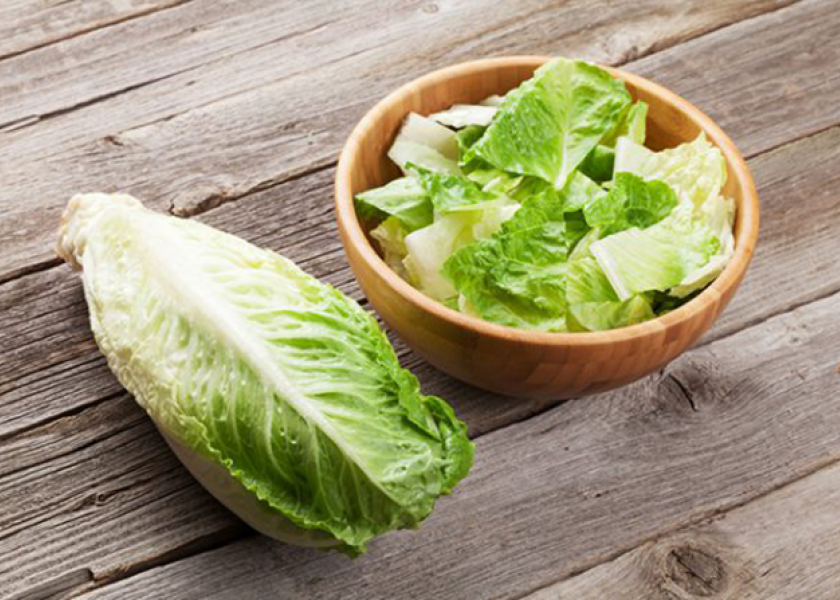Surprise Canadian plan on romaine import requirements raises alarm

Proposed regulations that would impose testing requirements on Canadian imports of romaine lettuce from California’s Salinas Valley are raising concerns for growers, buyers and industry associations.
The Canadian Food Inspection Agency (CFIA) wants to require importers of romaine from California’s Santa Cruz, Santa Clara, San Benito and Monterey counties to provide a certificate of analysis for each shipment to demonstrate that the product does not contain detectable levels of E.coli O157:H7.
Draft regulations for the plan were released Sept. 28.
Romaine lettuce from the U.S. has been the cause of several outbreaks of foodborne E. coli O157:H7 illnesses in Canada and the U.S. in previous years. The draft regulation said food safety investigations have identified the Salinas Valley as a source. The CFIA website details the timeline of illnesses linked to E. coli pathogens on leafy greens.
The CFIA draft regulation said the measure will be in effect from Oct. 5 to Dec. 31.
CFIA said it will allow imports of romaine lettuce from the U.S. if:
- The importer has a valid Safe Food for Canadians license;
- The importer identifies where the romaine was grown;
- California romaine has been handled by a California Leafy Greens Marketing Agreement member;
- Arizona romaine has been handled by an Arizona LGMA member;
- Romaine lettuce from the four California counties has a certificate of analysis demonstrating that sampling was conducted according to the sampling and testing requirements and the product does not contain detectable levels of E. coli O157:H7;and
- If a declaration of origin of the romaine lettuce is not available, a certification of analysis must be provided.
October surprise
The CFIA’s plan caught the industry by surprise, said Jane Proctor, vice president of policy and issue management for the Canadian Produce Marketing Association.
As of mid-day Oct. 1, she said CFIA and Health Canada remain committed to an Oct. 5 implementation of the measures.
“CPMA and the other stakeholder organizations were caught completely off guard by the announcement on Sept. 28 and the subsequent discussions with CFIA, Public Health Agency of Canada and Health Canada,” Proctor said in an e-mail.
She said the measures are new temporary and preventative in nature and not in response to any current E. coli contamination.
“While we recognize and share government’s commitment to ensuring the safety of Canada’s food supply, these measures were developed without consultation, are not achievable in the timeframe provided, and are resulting in significant impacts on Canadian industry and consumers and, of course, on the entire romaine growing community in the affected U.S. counties,” Proctor said.
She said industry associations are working as an informal coalition and immediately wrote to the Ministers of Health, Agriculture, Small Business & Export Promotion, along with the President of the Treasury Board, which Proctor said was a nearly “unprecedented action which underscores the severity of our concerns.”
“The situation is rapidly evolving and regardless of what occurs in the next few days, CPMA will continue to push both parliamentarians and civil servants to find a path forward that does not cripple industry,” she said. “It is shocking to us that this has been done within the current global pandemic when scarcity of food could not be of greater concern.”
Proctor said CPMA and a coalition of other associations in the U.S. and Canada have compiled a document of concerns, the scientific/practical severe limitations on compliance, and the known effects of the rule at that time.
That document, she said, was sent to CFIA Sept. 30. Government officials have said they are considering the information and have delayed the release of the final measures until the afternoon of Oct. 1.
“Our hope is that the input will dramatically change the parameters of the measures but we will not know until CFIA releases the final document,” she said.
Unworkable
The draft regulation presents many logistical challenges, said Jennifer McEntire, senior vice president of food safety and technology for the United Fresh Produce Association.
“If you look at the technical requirements, there are challenges with those too,” she said, noting that the way the draft regulations define a “lot” conflicts with most commonly accepted industry definitions.
The proposal has complex testing requirements for any product or product type containing romaine from California’s Central Coast, said Trevor Suslow, vice president of food safety for the Produce Marketing Association.
“There are substantial concerns which have been raised by multiple associations in Canada and the U.S. and expressed in very clear terms to the appropriate public agencies in Canada,” Suslow said.
“There would always have been logistical, testing lab technical capacity, and precedent issues of concern had there been adequate time to work out a compliance program, but dropping this 8 days before it goes into effect has been uniquely troubling.”
Suslow said one grower-shipper told him that the regulations, as written, would require at least 240 “sample grabs” and 48 individual lab tests for E.coli O157:H7 for just one typical mixed load 53-foot trailer.
Proctor said CPMA has learned that U.S. exporters aren’t shipping because of uncertainty about what implementation will look like and whether product in transit will be affected.
“To say we are deeply disappointed with the way this has unfolded does not begin to capture our concerns — effective and fair consultation and implementation periods is the backbone of any change in regulation or policy and this recent event in no way adheres to that,” Proctor said.
An e-mail to the CFIA public affairs office seeking comments was not answered immediately.
The Packer's Food Safety Coverage
The Packer's California Lettuce Coverage







